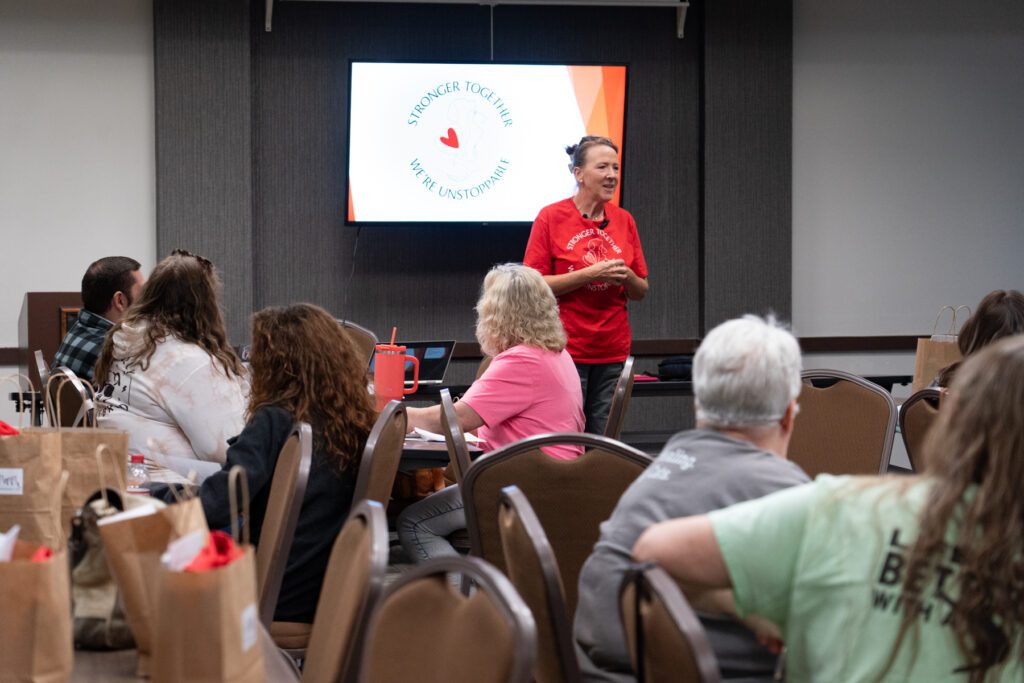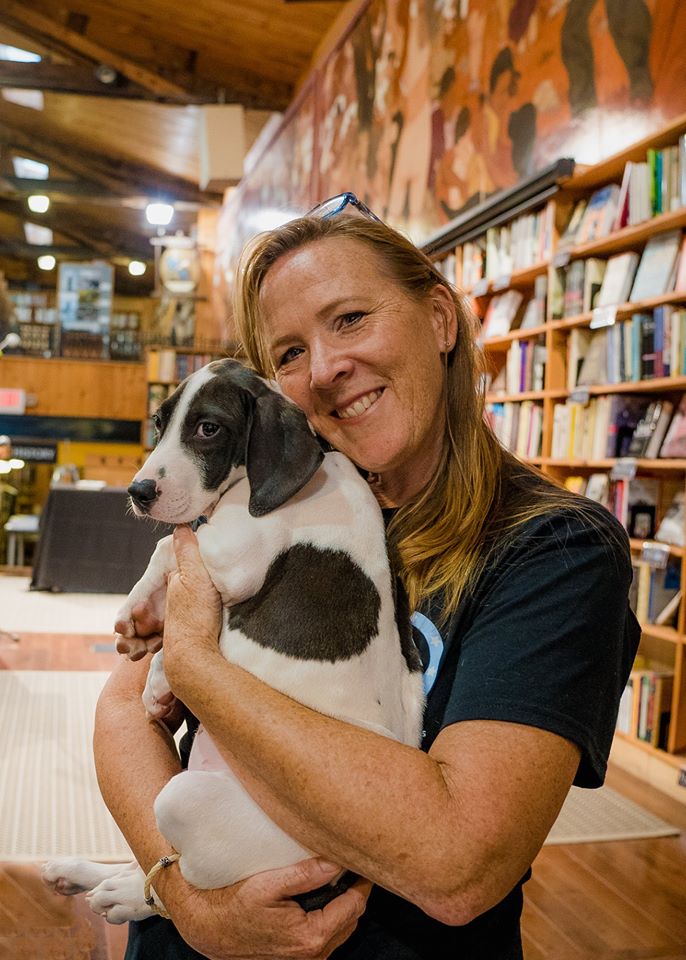We covered a lot of ground on this last shelter tour. We found heartache, but we also found hope. Six states, six shelters, two community meetings, one Stronger Together event in just eight days.
Two things were abundantly clear:
First, things are hard everywhere. Shelters and rescues are overwhelmed by owner-surrendered animals, an exploding stray population, and difficulty accessing and affording spay/neuter services. More dogs are being euthanized for space and/or living a stressful shelter life for months or years. While 2024 numbers were hard, 2025 will be worse.
And second, there are amazing heroes doing remarkable work all over the south. Despite the increased challenges brought by the economy, spay/neuter access (and cost), housing restrictions, unregulated rampant backyard breeding, and shelter/municipal policies, there is a lot of reason for hope.
As I shared each time I had the chance to speak about the animal crisis: The three things necessary to create a successful shelter are leadership, affordable veterinary access, and community engagement. The first two feel somewhat out of control at the moment, but the most powerful element has always been community engagement, and creative, resilient shelter staff are finding ways to harness that power.

The places that are making progress are doing three things:
- keeping intake open and offering help to everyone who come to them
- Being transparent and specific about the problem and the help they need
- truly engaging their community in the work they do
By appearances, the shelter we visited in Estill County, Kentucky, was the worst. The building is old and decrepit, dogs are kenneled in small packs, and they have only 2.5 employees. And yet, they are finding a way not just to save lives but to help the people who come through their doors. Even in this rural, economically challenged community located on a flood plain, people, businesses, and municipal leadership are stepping up to help them. They are even getting ready to break ground on a new shelter.






In DeKalb County, Alabama, where the hard facts are that 50% of animals that come through their doors will not get out alive, there was reason to hope. The nonprofit Friends of DeKalb County shelter group has ideas and energy to expand their work and help the shelter change that number. And despite the sad facts, the animals living there were the least stressed that we saw throughout our entire tour. The shelter handles over 3000 animals a year with a staff of only four people, yet, with the help of volunteers, the dogs still get their needs met, so that no matter the outcome, their shelter stay doesn’t make it harder.





In Union City, Tennessee, we met Alyssa, who has been the only animal control officer for the city for much of the last five and a half years. She has been through nine employees in that time, so the work of the shelter has fallen solely to her. There are days off or vacations when so many animals depend on you and getting them out alive is not in the municipal code (it instructs there be a seven-day hold and then the animal should be euthanized if not claimed). A new employee who seems to be sticking around means they can finally open up the shelters to volunteers. After our visit, locals talked of starting a nonprofit Friends of the Shelter group to help Alyssa.





In Jackson County, West Virginia, the shelter has come together to handle two hoarding cases (each with more than 20 dogs). Their new shelter building has expanded their capacity, and while they remain full, they are preparing to bring spay/neuter and other veterinary services in-house, which will speed up the timeline on shelter stays, and allow them to help more animals.





In Clarksdale, Mississippi, the shelter is being run by Gabi, the president of the shelter’s board and a mom who works full-time as a nurse. She stepped into the director role with the help of the entire board when they lost their Executive Director and Shelter Manager this past June, only to discover they are 70K in the red. With no money to hire, the board is running the shelter and moving animals out at a great clip. They are putting programs in place, improving the building, and working hard to get the shelter back on its feet. Engaging their community and being transparent about the situation are the keys to finding their way back.






And in Arkadelphia, Arkansas, the nonprofit shelter is crammed with dogs – housed in patched-together kennels that hold as many as seven or eight dogs. This is another shelter that recently lost its paid staff, and is now being run by board members. They’ve received a generous donation for a much-needed new shelter, but they need to find land to put it on. While we visited, the sheriff stopped by with a donation for their upcoming auction. He talked about the stray dog he is housing at the jail (because there was no more room at the shelter) and the great impact the dog’s presence has had on the inmates. Students from a local college stopped by to pick up another foster cat. As hard as the situation is, the people we met were optimistic and excited about the shelter’s future.






Maybe the most inspiring moment was when we spent time with a dozen or so rescue organizations in northern Mississippi. It was the first gathering of this community to connect, support each other, and find ways to work together to solve the animal crisis. And it is a real crisis there, as evidenced by the presence of nine stray dogs on the property where we met with them.





And, of course, Stronger Together West Tennessee, was great cause for hope as people from three different states joined us and talked about solutions. So many amazing people doing heroic work all in one room that day sharing ideas and offering support for the struggle.





It was such a privilege to meet and spend a little time with these heroes. We work to do all we can to help. Beyond telling their story to raise awareness, we offer ideas and resources, along with a follow-up report with specific suggestions. We also offer two grant programs for our visited shelters – one for resources and one for spay/neuter. We will continue to stay involved in the work they do, being available as a resource and always searching for more ways to help. Look for upcoming posts (on our new website!) in the coming weeks sharing the stories of each of these visits and how you can help.
The animal crisis in our country is dire, and it will take all of us to finally let the dogs out! Please get involved wherever you are in whatever way you can. I firmly believe, everyone can do something.
And, as always, we can use your help to continue the work we do. Our next tour will be to Florida in January with stops in other states on our way there/back, plus another Stronger Together Event in central Florida.

We are VERY excited to announce a new website and new logo coming this month! Stay tuned!
Until each one has a home,
Cara
Subscribe to our email list to get the latest stories and solutions delivered to your inbox. And help us spread the word by sharing this post with others. Visit our website to learn more.
You can also help raise awareness by following/commenting/sharing our content on Facebook, Instagram, YouTube, and TikTok.

Who Will Let the Dogs Out: Stories and Solutions for Shelters and Rescues was published in January of 2025. It is filled with stories and ideas to help everyone be part of the solution. You can buy a hardback or paperback copy for yourself and/or buy a copy for a shelter or rescue through our website. It is also available on Amazon in paperback and ebook. We are seeking opportunities to present the ideas from the book and facilitate discussions on how we can collaborate to find solutions for our shelters. If you have a dog-hearted group that would like to connect, contact Cara@wwldo.org.
To see our Emmy-nominated, award-winning short documentary, Amber’s Halfway Home, click here.
Did you know we have a podcast? I’m working at getting regular episodes up, including the audio version of the new book. Find the podcast on Spotify and other podcast services.
For more information on any of our projects, to talk about rescue in your neck of the woods, or partner with us, please email cara@WWLDO.org.
For links to everything WWLDO, including volunteer applications, wishlists, and donation options, check out our Linktree.



Leave a Comment
Sign up for our newsletter
Sign up to have our latest news, grant updates, shelter visits, and more delivered to your inbox.
Share this:
Like this: